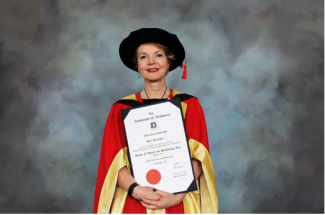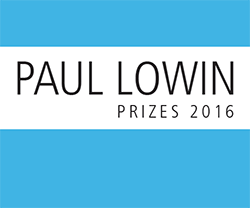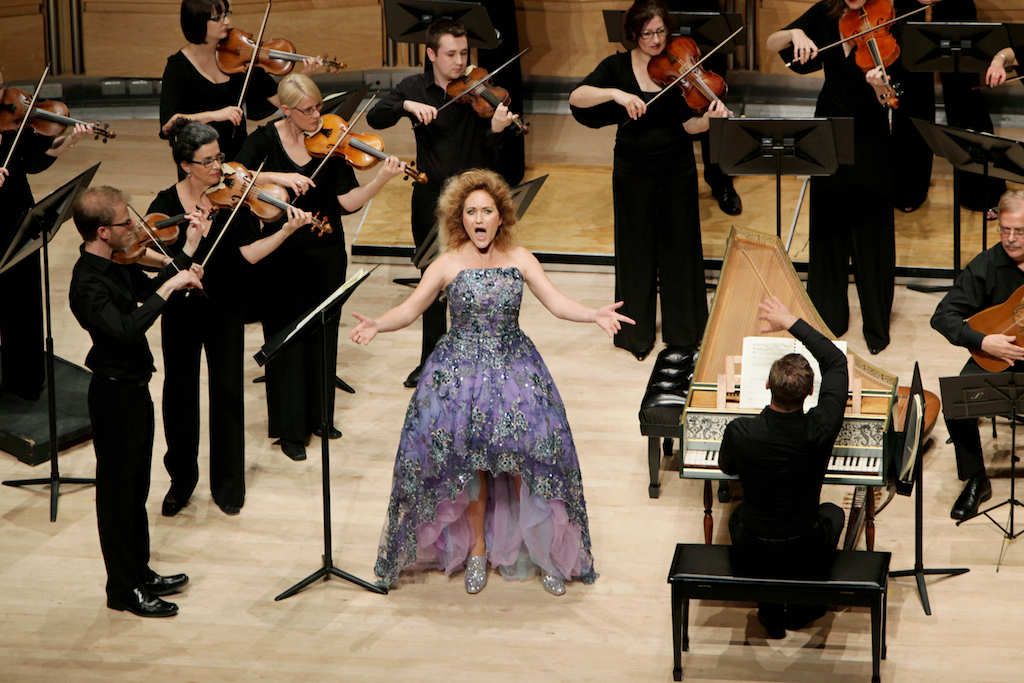The Dangers Of Commoditising The Arts: Doctoral Speech By Mary Jo Capps

Mary Jo Capps
Musica Viva CEO Mary Jo Capps was last week awarded an honorary doctorate by the University of Melbourne, for her contribution to music and to the university.
Music Viva has kindly shared the text of Ms Capps’ speech which sheds an invaluable perspective on how we participate in the arts and its role in society. Here is an edited version of her address:
Thank you for inviting me here to share this very special day. I’d like to start with a lovely little story from Sir Ken Robinson, in one of his incredible TED Talks on the value of an arts-rich education, which goes to the heart of the power of the arts to help us imagine the unimaginable.
A teacher assigns their Year 1 class the task of drawing whatever they like for the next 15 minutes. One little girl industriously commences, scrunched over her chosen piece of paper. The teacher asks what she is drawing. “I’m drawing a picture of God.”
The teacher is somewhat taken aback and gently comments: “But no one knows what God looks like.” To which the little girl responds: “They will in a minute!”
At its very best, the arts put us in touch with that little girl, encouraging us to see and feel the world around us differently. This is the power with which you leave this institution today.
It’s been nearly 40 years since I graduated with my Masters in music. One thing that hasn’t changed in the entire generation since I graduated is the reaction from people – you know what I mean, the look they would give me when I said: “I studied music”. Forty percent of their reaction was admiration or awe – often borne out of a misconception regarding the true ratio of inspiration to perspiration that goes into the arts. The other 60% conveyed this concern: “Remind me why you didn’t do law or medicine?” Or any of the other options available on entering university. I’m sure many of you here had plenty of options you could have chosen – fine arts and music students are often spoiled for choice as they leave secondary school.
The question lingering on their lips, if not verbalised: How on earth do you plan to make a living? Indeed, the recently released study by Professor David Throsby and his team in the Economics Department of Macquarie University reviewed the bank of data they now have since commencing this regular study in the early 1980s.
Their analysis revealed that
- Australian artists now spend more time on their creative practice than in previous years but earn less from it; and
- the income gap between men and women is wider in the arts than across all industries in Australia.
This is tangible evidence of the obstacle faced by professional artists throughout their career: having to explain why we should be paid for doing what others do for fun.
We all know the training is just as rigorous, if not more so, than other pursuits. In fact, the same study revealed that 90% of professional artists have post-school qualifications compared with only 53% for the general labour force.
As I am frequently heard to say about my own profession of music, as far as I can tell, the only other professions for which people actively start training at age four are dance and swimming. One could argue that visual arts, story-telling and acting really spring from the same development period in early childhood.
As far as I know, no merchant banker, no dentist, no neuroscientist starts to train at that early stage. On every level, an economic argument for the arts has its limits and contradictions.
It’s time to change the conversation.
Let’s just consider for a moment the whole issue of the economic analysis of the arts. What does that say about our society today? Has everything become so commoditised that we need to measure human endeavour in terms of its direct market value? Even those in the arts have picked up the lingo:
- The Arts Council of England released a seminal report on “Measuring the economic benefits of the arts”.
- The Federal Government of Australia carefully crafts the language it uses for considering the arts, especially come budget time, to emphasise the role the arts play in the Australian economy.
- Do you know in which government department Creative Victoria sits? …The Department of Economic Development, Jobs, Transport and Resources.
We have all bought into the language.
I’m a firm believer in acknowledging loudly the huge economic impact the arts have. That is the main reason I became so active in the Business Chamber. The arts are a too often underrated essential element in creating the truly great cities of the world… but how has that become our first line of defence? This economic rationale gets further played out in most education debates. Time and time again, over the past 60 years, music and the arts have been proven to be valuable subjects for all children. The study of music and the arts builds a child’s capacity in
- pattern recognition,
- in team work,
- in listening and responding,
- in self-esteem,
- in articulating emotions…
The arts are often a way to reach children who have otherwise “checked out” of the educational system.
Indeed, the arts HELP A CHILD ACHIEVE ALL THESE THINGS but, the arts are important because they are good in themselves, because they are inspiring, because they make us feel and think differently about ourselves and about the world around us. That is their greatest and unique value.
Each one of you today needs to be an inspirational advocate for the fact that the arts are essential because they are, not because of what they might be traded for in the marketplace.
Why is it important that we believe and act on that truth without delay?
The future of Australia will be shaped by the creativity and imagination of its people. Never has the need been greater for people of resilience, for people capable of creative problem solving, for people skilled at dealing in abstract concepts – in other words: for artists.
The job ahead of all of us in the arts is to be able to change that economic rationalist conversation into a conversation that talks about how you have been able to turn your love of the arts into a lifetime career that changes lives.
This is the power you take with you as you graduate from this amazing institution. You have the power, through your art in whatever ways you choose to use it, to change the way people think and feel.
I urge you to leave here today and start straight away to
- BE AN ADVOCATE
Talk about the value of the arts to anyone, anywhere, without apology, without rationalizing. Who is better placed to encourage participation in the arts as audiences, patrons, or silent acceptors? And if we don’t do this, who are we expecting will?
It is you and me: by our words and our actions, every day.
- BE FEARLESS
- Say yes to all good ideas AND
- don’t be afraid to fail…. In failure, we learn our best lessons.
- Never stop asking to be involved
- Never stop trying new things.
- BE COLLABORATIVE
We who share the same language and love of the arts need to support one another in enabling this change… become a collective force of artists coming from different art forms, but always pushing the boundaries of what the arts are and how we can all engage, at every age and stage of our lives.
And what an ideal time to venture out into the arts. Society as a whole is searching for deeper meaning, a sense of purpose, something beyond pursuit of wealth and power.
The arts offer a key component in that search. You are there, at the front line of the newest frontiers.
And so, please
- be fearless;
- be collaborative; and
- be an inspirational advocate: for the power of the arts for themselves, as well as for what they can enable.
Use your art to rise above the depressing chatter. Change the conversation about the arts from the economic rationalist one to a deep appreciation of art for art’s sake.
Whatever path you choose: whether it’s
- working directly in the arts
- teaching
- volunteering in the arts
- being an audience member, a consumer or a patron
My wish is for you to be the person standing here decades from now, and able to say:
“I took this gift of the arts to the world, the skills that I have honed here at the University of Melbourne, I have treasured this gift and used it to open up new opportunities for myself and for others. I have helped change the way people talk about and relate to the arts.”
And like the little girl in that story… you have helped all of us imagine the unimaginable.
Mary Jo Capps©
More about Mary Jo Capps and the awards ceremony.





